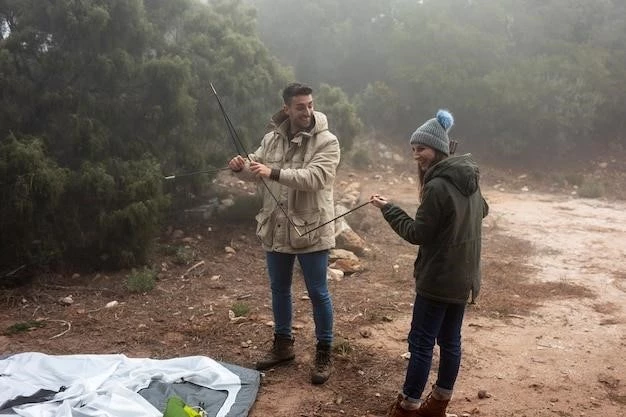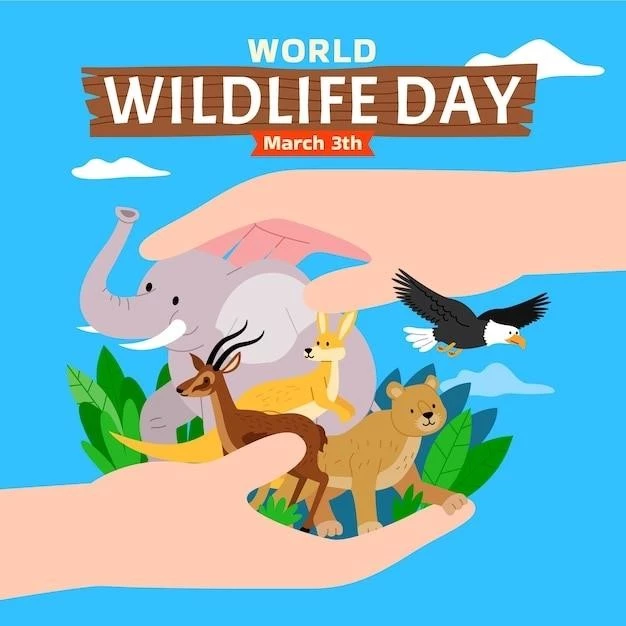The Earth is experiencing a biodiversity crisis․ According to the International Union for Conservation of Nature (IUCN), over 44,000 species are threatened with extinction․ This includes iconic animals like tigers and elephants, as well as countless plant and insect species that are vital to healthy ecosystems․ The good news is that we can all play a part in protecting endangered species․ Here are some actions you can take:
1․ Understand the Issue and its Causes
Before taking action, it’s essential to understand why species are becoming endangered․ The major threats to biodiversity include:
- Habitat loss and fragmentation: This is the most significant threat, driven by deforestation, agriculture, mining, and urban development․
- Climate change: Altering weather patterns and temperatures disrupt ecosystems and the species that depend on them․
- Poaching and illegal wildlife trade: Driven by demand for exotic pets, traditional medicines, and luxury goods․
- Pollution: Air, water, and soil pollution poison wildlife and damage habitats․
- Invasive species: Non-native species can outcompete native ones for resources, disrupt food webs, and introduce diseases․
2․ Make Sustainable Choices
Our everyday choices can have a significant impact on the planet․ Here are some ways to make your lifestyle more sustainable:
- Reduce your carbon footprint: Choose energy-efficient appliances, walk, bike, or take public transportation whenever possible, and support renewable energy sources․
- Conserve water: Fix leaks promptly, take shorter showers, and water your lawn efficiently․
- Reduce, reuse, and recycle: Cut down on single-use plastics, compost food scraps, and recycle paper, glass, and plastic․
- Choose sustainable products: Look for products made from recycled materials, sustainably harvested wood, and certified sustainable seafood․
- Support sustainable businesses: Patronize companies with strong environmental and social responsibility practices․
3․ Be a Conscious Consumer
The products we buy can contribute to habitat destruction and the illegal wildlife trade․ Here’s what you can do:
- Choose sustainable seafood: Refer to seafood guides from organizations like the Monterey Bay Aquarium Seafood Watch to make ocean-friendly choices․
- Avoid products that contribute to deforestation: This includes products made with palm oil (unless it’s certified sustainable), unsustainable timber, and beef raised on deforested land․
- Never buy products made from endangered species: This includes ivory, tortoise shell, and certain furs․

4․ Support Conservation Organizations
Many organizations are working tirelessly to protect endangered species․ You can help by:
- Donating to conservation groups: Your financial contributions can fund research, habitat restoration, anti-poaching patrols, and other vital initiatives․
- Volunteering your time: Participate in beach cleanups, habitat restoration projects, or citizen science initiatives․
- Spreading awareness: Share information about endangered species and conservation efforts with your friends, family, and social networks․
5․ Advocate for Change
Your voice matters! You can advocate for stronger environmental policies by:
- Contacting your elected officials: Let them know that you support policies that protect endangered species and their habitats․
- Supporting legislation: Stay informed about bills related to conservation and contact your representatives to express your views․
- Holding businesses accountable: Encourage companies to adopt sustainable practices and avoid those that engage in environmentally harmful activities․
6․ Be a Responsible Traveler
Tourism can impact wildlife and their habitats․ When traveling, be a responsible tourist by:
- Choosing eco-friendly accommodations: Look for hotels and lodges that have sustainable practices in place․
- Respecting wildlife: Observe animals from a distance, never feed them, and avoid disturbing their natural behavior․
- Minimizing your impact: Pack light, avoid single-use plastics, and dispose of waste properly․
- Supporting responsible tour operators: Choose tour companies committed to conservation and sustainable practices․

7․ Educate Yourself and Others
The more you learn about endangered species and the challenges they face, the more effectively you can act to protect them․ Share your knowledge with others to inspire action․
- Visit zoos, aquariums, and nature centers: Many of these institutions have educational programs that highlight conservation efforts․
- Read books and articles: Stay informed about the latest news and research on endangered species․
- Talk to your children: Instill a love and appreciation for nature in the next generation․
Conclusion
Protecting endangered species is not just the responsibility of governments and conservation organizations – it’s a collective effort that requires the participation of every individual․ By making conscious choices in our daily lives, supporting conservation efforts, advocating for change, and educating ourselves and others, we can all contribute to a future where biodiversity thrives․ Remember, even small actions can make a big difference when we all work together․










